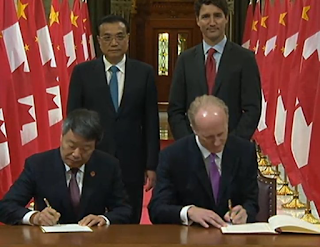Much Ado About Deutsche?

Evelyn Cheng of NBC reports, How US regulators may be creating panic around Deutsche Bank : Deutsche Bank finds itself in the center of a panic, and some analysts are pointing fingers at U.S. regulators. Germany's biggest bank fell under fresh scrutiny beginning on Sept. 16 when it surfaced that the U.S. Department of Justice was demanding it pay a $14 billion fine for its mortgage lending activities during the housing bubble. Shares of Germany's biggest bank plunged on Thursday on reports that a handful of its big hedge fund clients were limiting their exposure to Deutsche Bank, though the bank has characterized those media reports as "unjustified concerns." Certainly, the Justice Department is not the only organization scrutinizing Deutsche Bank: The IMF released a report this summer stating that that Deutsche Bank poses a greater risk to the global financial system than any other bank in the world. But the size of that Justice Department fine h...





